#classic eliot
Quote
April is the cruelest month, breeding
lilacs out of the dead land, mixing
memory and desire, stirring
dull roots with spring rain.
T.S. Eliot, The Waste Land
2K notes
·
View notes
Text
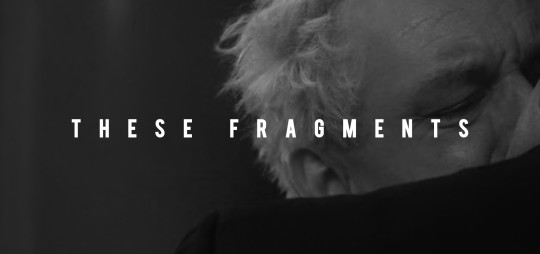

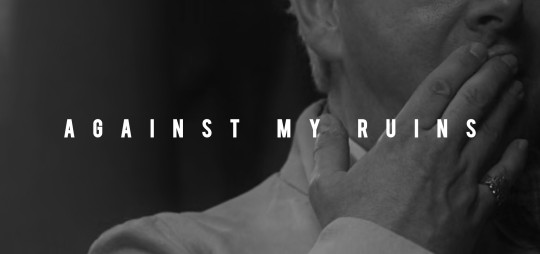
the waste land
135 notes
·
View notes
Text
And, of course men know best about everything, except what women know better.
- George Eliot, Middlemarch
#quotes#books#literature#lit#classics#academia#light academia#dark academia#chaotic academia#book#book quotes#quotation#George Eliot#Middlemarch#Historical Fiction#Fiction
85 notes
·
View notes
Text

—T.S. Eliot
#poets on tumblr#dark academia#aesthetic#spilled poetry#words#spilled ink#spilled thoughts#19th century#vintage#love poem#dark acadamia aesthetic#dark academia books#renaissance art#renaissance#poetry#dark academia lovers#vintage classics#t.s. eliot#dark acdemia
276 notes
·
View notes
Text

Veronica Lake By Eliot Elisofon, 1943
#vintage#beauty#actress#hollywood#classic actress#vintage actress#classic hollywood#vintage hollywood#golden age of hollywood#eliot elisofon#1943#veronica lake
22 notes
·
View notes
Text


21/03/24
Starting a new book (Great Expectations made me loose brain cells)
#academia aesthetic#chaotic academia#classic academia#dark acadamia aesthetic#dark academism#old aesthetic#romantic academia#soft academia#books & libraries#light academia moodboard#middlemarch#george eliot#great expectations#charles dickens
20 notes
·
View notes
Text
love how the fandom basically unanimously agreed that darius will go from calling hunter "little prince" (derogatory/"you snooty little nepotism baby") to calling hunter "little prince" (affectionate/"my beautiful son that deserves the world")
#eliot posts#toh#the owl house#darius deamonne#dadrius#hunter toh#hunter deamonne#it has become almost cliche in fanworks but idc it's cute#i think he'd give hunter many nicknames cuz he's a nicknames guy#some of which might be affectionately insulting like how he calls eberwolf ''mutt''#but little prince is the Classic
882 notes
·
View notes
Text

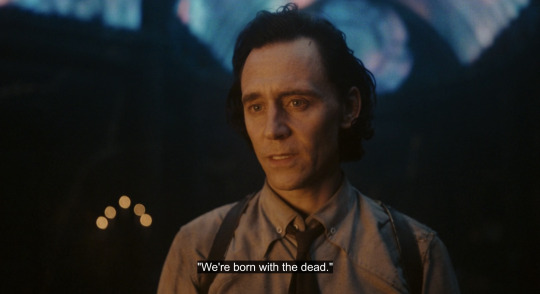
"Four Quartets: Little Gidding" - T.S. Eliot
V
What we call the beginning is often the end
And to make an end is to make a beginning.
The end is where we start from.
And every phrase
And sentence that is right (where every word is at home,
Taking its place to support the others,
The word neither diffident nor ostentatious,
An easy commerce of the old and the new,
The common word exact without vulgarity,
The formal word precise but not pedantic,
The complete consort dancing together)
Every phrase and every sentence is an end and a beginning,
Every poem an epitaph. And any action
Is a step to the block, to the fire, down the sea's throat
Or to an illegible stone: and that is where we start.
We die with the dying:
See, they depart, and we go with them.
We are born with the dead:
See, they return, and bring us with them.
The moment of the rose and the moment of the yew-tree
Are of equal duration.
A people without history
Is not redeemed from time, for history is a pattern
Of timeless moments.
So, while the light fails
On a winter's afternoon, in a secluded chapel
History is now and England.
With the drawing of this
Love and the voice of this Calling
We shall not cease from exploration
And the end of all our exploring
Will be to arrive where we started
And know the place for the first time.
Through the unknown, unremembered gate
When the last of earth left to discover
Is that which was the beginning;
At the source of the longest river
The voice of the hidden waterfall
And the children in the apple-tree
Not known, because not looked for
But heard, half-heard, in the stillness
Between two waves of the sea.
Quick now, here, now, always—
A condition of complete simplicity
(Costing not less than everything)
And all shall be well and
All manner of thing shall be well
When the tongues of flame are in-folded
Into the crowned knot of fire
And the fire and the rose are one.
#loki spoilers#tom putting that classics degree to good use#fuck#the eliot poem is PERFECT gods the writers knew EXACTLY what they were doing
31 notes
·
View notes
Text
"What do we live for, if not to make life less difficult for each other?"
— George Eliot, Middlemarch [1871]
#george eliot#middlemarch#classic lit#classic literature#feminist literature#feminist#literature quotes#book quotes#life quotes#quotes#words and quotes#beautiful words#wordporn#literature excerpts#excerpt#light acadamia aesthetic#light academia#read a book#reading challenge#currently reading#booktok#bookstagram#bookblr#booksbooksbooks#books and libraries#books and reading#dark academia#dark academia aesthetic#books and literature#literature
123 notes
·
View notes
Text
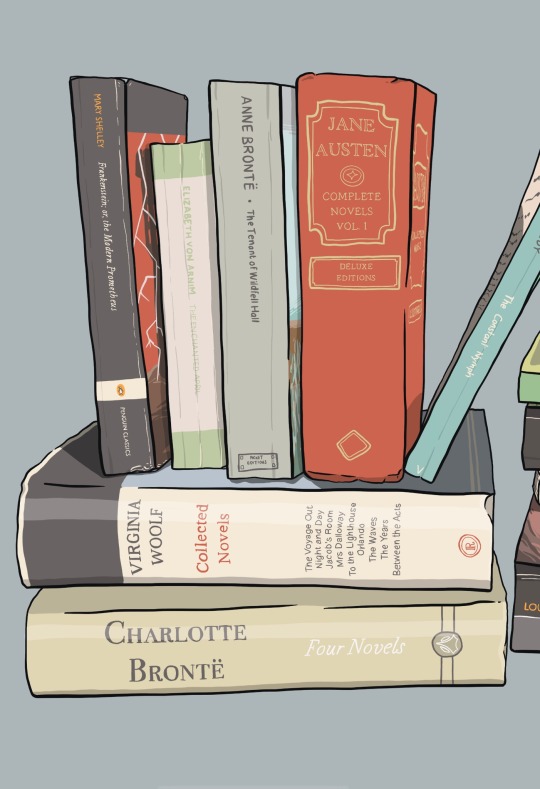
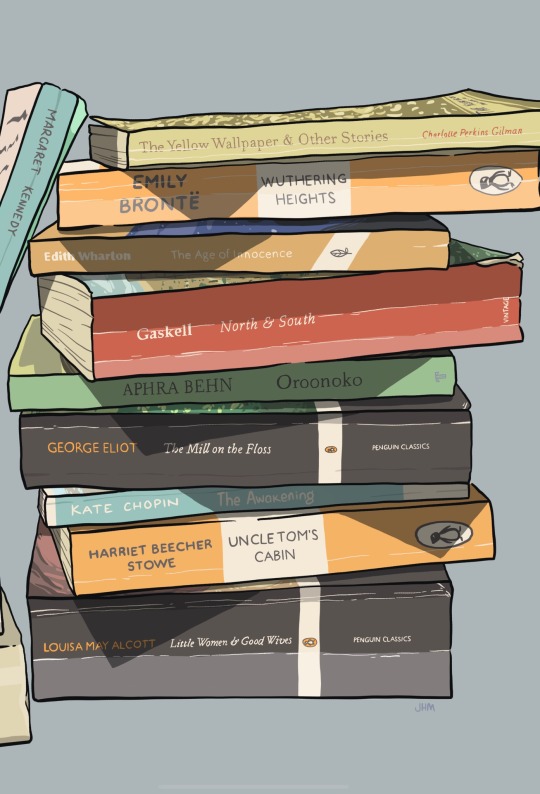
Some favourite classics again
#my art#books#booklr#illustration#penguin classics#george eliot#aphra behn#virginia woolf#little women#bronte sisters
823 notes
·
View notes
Text
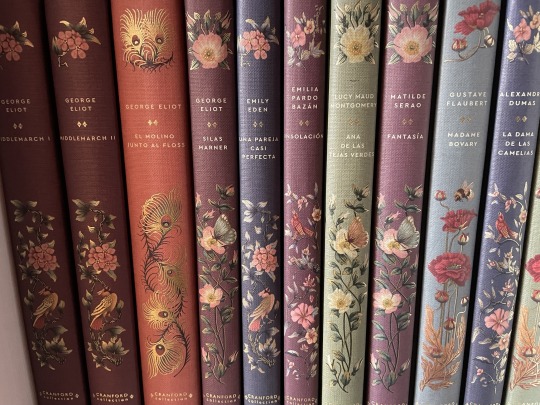
FunDayBPC | September | 6: Read A Book Day
#fundaybpc#fdbpc#book photo challenge#booklr#george eliot#emily eden#emilia pardo bazan#lucy maud montgomery#gustave flaubert#alexandre dumas#classic books#book photography#my photos#bookshelf#leerreadinglire
33 notes
·
View notes
Text
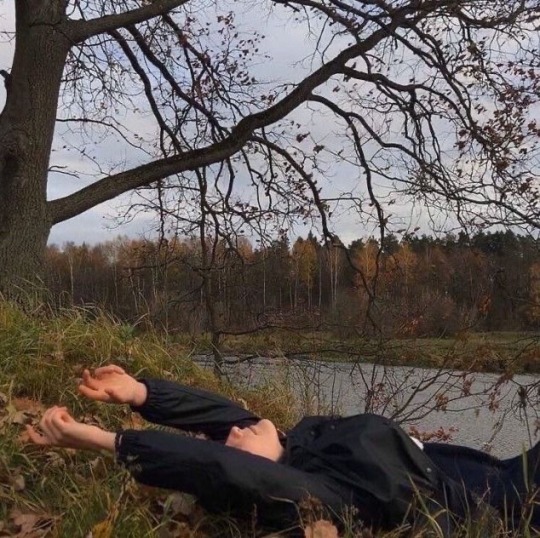
“If I were a bird, I would fly about the Earth seeking the successive autumns.”-George Eliot
#academia#chaotic academia#classic academia#dark academia#literature#uni#college#english literature#lit#fall#autumn#Halloween#spooky season#weather#fall weather#sweater#cozy#george eliot#leaves#coffee#tea#aesthetic#photography#sweater weather#whimsicore#whimsigoth#whimsical#cold weather#quote#literature quotes
31 notes
·
View notes
Quote
It is impossible for us ever to belong to each other.
George Eliot, from Middlemarch
#star-crossed lovers#unrequited love#impossible#thwarted love#fraught#dramatic#romance novel inspo#fanfic inspo#romantic#dialogue#what a line#quotes#lit#words#excerpts#quote#literature#classics#george eliot#middlemarch
114 notes
·
View notes
Text
Book Recommendations (from a lit grad student)
So, as I have come to the end of my MA in world lit, I thought I should give you a list of some of the best books I've read, or learnt from. I ignore established canon and give to you recommendations from across the globe and across all genres. Books that defined their genre, or made an impact, or are just really cool and enjoyable to read. This list is not all dead white men.
I have split the list by era/year of publication primarily for easy reading. A lot of the sections are arbitrary. Some of them are not.
Note: This list is not conclusive! This is based on my own readings, and my own, personal, opinions. You have the right to your own opinions and preferences. If you have any suggestions, add them on below.
Classic lit (pre-1700)
Aristole - Poetics (c. 335 BCE)
As much as I hate it...this one is actually pretty important. I know I said 'contributions to literary canon don't matter', and here I am, immediately doing the opposite. But! Aristotle's Poetics is the earliest treatise on literary theory that has survived to the modern day. You want to know where our ideas of comedy and tragedy come from? Poetics. Three act structure? Poetics. Plot and character? Poetics. Key terms like catharsis, hubris, hamartia? Poetics. We had to read this for creative writing, and did I hate it? Yes. Am I a better writer for having read it? Also yes
Plato - The Republic (c. 375 BCE)
Plato is quite easy to read, of the classical philosophers. His works are mostly dialogues between characters, which makes them more engaging that some other dry philosophy texts. I wrote out a longer post with an explanation of Plato's Republic specifically here.
Genji Monogatari (pre-1021)
The first novel ever! Originally written in Japanese, be careful of your translations because most are of questionable quality. I've only read the first one by Suematsu and that's uhhhhh Bad™ but I think the current waterstones edition is decent?
The Völsunga saga OR The Vinland sagas (early 13th century)
Ah, how to choose just one Norse saga? These are both pretty solid examples of their style, and short (always a plus). The Völsunga saga was the inspiration behind Wagner's Der Ring des Nibelungen (famous for the piece The Valkyrie), and most likely Tolkien's works. The Vinland sagas supposedly have an anime/manga series inspired by them, though looking at the synopsis I cannot see where the inspiration was other than time period. Norse sagas - especially the Icelandic ones such as Vinland - are actually pretty good guides to real historic events, which is very cool. I could go on for hours about this, but I'll spare you the rambling.
Thomas More - Utopia (1516)
Lovely little sarcastic book about tudor politics and human nature all wrapped up in the original 'utopian text'. Surprisingly funny for something written so long ago, and very easy to read. I wrote a longer post about it here
Aphra Behn - Oroonoko (1688)
Hated it, but the themes are interesting and wow did the author lead an interesting life. Widely considered to be the first novel written in English, deals with colonialism, slavery, and honour, and Aphra Behn was a spy? I'm sure some of you will eat that up. Be warned, very 'noble savage'-y book, but less racist than it could've been so cool, I guess?
Early Modern Drama
Christopher Marlowe - Edward II (1592)
Gay. So gay. We're not supposed to call it gay (because of a whole host of reasons that I can and will explain if anyone shows up in my askbox complaining about academics) but it is a very very queer play and Kit Marlowe was too which is even better. Also our one and only history play on this list. Anyone who already knows how Edward II died (thanks horrible histories) do not spoil the ending.
Shakespeare - Twelfth Night (1602)
As with any Shakespeare, watch a performance if you can. I highly recommend the National Theatre version that was up on youtube in 2020. Very gay, no one is cishet. Lots of singing and dancing. Prime example of Shakespeare's comedies with added gender shenanigans.
Shakespeare - Hamlet (1609)
Yes I'm basic. Yes I like Hamlet. In the same way that Twelfth Night is a great example of Shakespeare's comedies, Hamlet is a good example of his tragedies. Mostly, though, I'm recommending this because the castle it's set in in Denmark (Elsinore) a) actually exists and b) does an amazing educational programme, with live actors performing scenes all across the castle! Watching the 'to be or not to be' soliloquy in the banquet hall just adds a whole other level to the experience of reading the play.
Shakespeare - Measure for Measure OR The Tempest
Shakespeare's problem plays. I couldn't pick just one, because they're both fantastic in different ways. Measure for Measure features what can only be described as the early-modern version of an ace protagonist - Isabella - who I adore. The Tempest has a really interesting portrayal of early colonialism and slavery. The reason they are 'problem plays' is they check all the boxes for a comedy...but they're not funny. At all. And they also check some of the boxes for a tragedy. They're certainly interesting reading
Ben Jonson - The Alchemist (1610)
Just a really good, solid play. Very funny. Bunch of con artists set up an elaborate scheme to rob rich people. Also very good for showing class structures of the time. Shakespeare gets all the recognition for this era but Jonson is just as good really, and definitely as clever.
Regency and Victorian lit (1700-1900)
Jane Austen
Literally anything by Austen. She is just so funny, so witty, and I wholeheartedly believe she'd be a feminist today. Master of the female gaze in literature, but beyond that she is basically credited with the invention of free indirect discourse, which is super cool. I have only read Pride and Prejudice, but I have heard good things about most of her books, so I don't feel bad recommending all of them.
William Blake
There's one poem by Blake about a London street urchin that breaks my heart every time I read it and that is the sole reason behind this recommendation I hate Romantic poets.
Mary Shelley - Frankenstein (1818)
You knew it was coming. First sci-fi, gothic horror, teenage girl writer. Gotta love Shelley.
Frederik Douglass - Narrative of the Life of Frederik Douglass (1845)
You know those books that are horrifying because they're real? That's this book. Doesn't shy away from the horrors of slavery and for a reason. This is an autobiography. It is not fiction.
Gowongo Mohawk - Wep-ton-no-mah (1890s)
My favourite play of all time. You will need to do a trip to either the British Library or the Library of Congress to read it because there are no other copies, but I did do a whole podcast episode about it because I'm apparently the expert? You can find it here.
Bram Stoker - Dracula (1894)
I know here on tumblr we adore Dracula, and for good reason. It's horrifying, it's got a blorbo, if you haven't read it already, go with a dracula daily read-through or @re-dracula for the best experience. (Re:Dracula also has episodes where they get scholars on to talk about things like racism and gender and queer theory surrounding the text which is SO COOL as an ex-lit student I love listening to those episodes.
Post-1900
Oscar Wilde - De Profundis (1905)
We had to read a snippet of this for A-Level and I wish it had been more because wow. Most lists like this will recommend Dorian Gray because it's a novel, but De Prof is so heartfelt and beautiful and sad and deserves to be read.
Baroness Orczy - The Scarlet Pimpernel (1905)
First masked vigilante/superhero! If you like comic books or superhero media, this is where it all started (funny how all the firsts so far have been written by women 🤔)
Erich Maria Remarque - All Quiet on the Western Front (1929)
If you only read one book in your life about WW1 make it this one! It is heartbreaking and beautifully written and makes you feel so many things. It was banned in...a lot of places for being anti-war (especially as WW2 came closer) and also because it was written by a German who was anti-war which was apparently impossible to comprehend. The prose is truly something to behold.
Modern lit (Post-war era)
George Orwell - 1984 (1948) OR Animal Farm (1945)
Which one you should read depends a lot on how long your preferred book is and how metaphorical your tastes are. Both are very good explorations of corrupt governments. Animal Farm is an easier read and shorter and is much more allegorical. 1984 is very in-your-face about how much authoritarian governments suck. Do not discount 1984 just because Winston is a terrible person. Everyone knows he's terrible. That's the whole point. He is a normal terrible person, not a cartoonishly evil terrible person, or an angelically perfect revolutionary. All the characters are realistic for their situation.
Maya Angelou - I know why the caged bird sings (1969)
Another one with some beautiful prose. She's a poet and you can tell. It's an autobiography, plus there's a lot of clever stuff going on with how it's written. You could write an essay about this. I did.
Ghassan Khanafani - Return to Haifa (1969)
A short story by a Palestinian author - we were given this by our Palestinian lecturer as an intro to the conflict and the terrible things that colonialism has done to the region. Additionally, there are notes throughout that help explain the significance of things and background and all that jazz. There is a play version that is probably easier to find because it was published more recently but it's not as good.
Ben Okri - The Famished Road (1993)
I did not read this book for uni and I think that may have influenced my opinion of it slightly but I still credit it as one of the reasons I got interested in world lit and translation. It's a really beautiful exploration of Nigerian mythological tradition and its effect on family and politics in this kind of fascinatingly weird style that's both magical realism and modernist? I hate modernism but love magical realism more so.
Carmen Maria Machado - In the Dream House (2019)
What a book oh wow. It reads like poetry. I cannot think of anything coherent to say my brain is screaming. The novel explores abuse in queer relationships, which is something people don't normally talk about, through some very interesting motifs and I love it so much. It is hard to read, but very rewarding.
#studyblr#english lit student#bookblr#book recommendations#maybe i will do another one for theory#maybe i will not#classics#literature#the lack of early 1900s stuff distresses me but also#i am not and never have been a fan of that era#i am not willing to inflict virginia woolf or ts eliot on anyone#my specialties are all pre-1900 or post-war soooo
12 notes
·
View notes
Text
In defence of Will Ladislaw
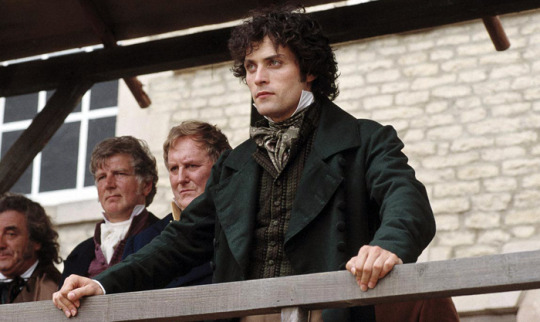
George Eliot's characterisation of Will Ladislaw is one of the few aspects of Middlemarch that is not universally praised, with no less a person than Henry James commenting in 1873 that he lacked “sharpness of outline and depth of color”, making him the novel’s “only eminent failure.” And while Will's character is certainly not as clearly defined as some of the other characters in the novel, I believe that this was absolutely intentional on Eliot's part. Middlemarch is full to the brim of characters who believe they know exactly what they want—not least among them, our two protagonists, Dorothea Brooke and Tertius Lydgate, whose ardent ambitions and inflexible attitudes lead them into catastrophic errors of judgement and unhappy marriages.
By contrast, Will's lack of strongly defined goals and his changeability are almost his defining character traits. He's aimless and pliable, prone to rapid mood swings and drastic career changes, with even his physical features seeming to "chang[e] their form; his jaw looked sometimes large and sometimes small; and the little ripple in his nose was a preparation for metamorphosis. When he turned his head quickly his hair seemed to shake out light."
Will’s inscrutability is closely tied to his ambiguous status within the rigid class structure and xenophobic society of Victorian England, with his Polish ancestry and “rebellious blood on both sides” making him a target for suspicion. He is repeatedly aligned (and aligns himself) with oppressed, marginalised, and outcast populations—Jewish people, artists, and the poor.
He serves as a narrative foil for characters like Lydgate and Edward Casaubon, who prioritise specialist expertise above all and are consequently incapable of broad knowledge synthesis. He critiques Casaubon's life's work as being "thrown away, as so much English scholarship is, for want of knowing what is being done by the rest of the world." By contrast, Will serves as Eliot's defence of the value of a liberal education. One of the first things that we learn about him is that he declines to choose a vocation, and instead seeks to travel widely, experiencing diverse cultures and ways of life. He has broad tastes and interests, trying his hand at poetry and painting before eventually pursuing a career in politics.
He also functions as a narrative foil for Dorothea. Will is initially apathetic to politics, whereas Dorothea initially professes herself to be disinterested in art and beauty. This is perfectly encapsulated in their exchange in Rome, when Dorothea declares, "I should like to make life beautiful—I mean everybody's life. And then all this immense expense of art, that seems somehow to lie outside life and make it no better for the world, pains one", to which Will replies, "You might say the same of landscape, of poetry, of all refinement [...] The best piety is to enjoy—when you can [...] I suspect that you have some false belief in the virtues of misery, and want to make your life a martyrdom.”
By the end of the novel, Dorothea unlearns some of her puritanical suspicion of sensual pleasure, whereas Will becomes more serious, compassionate, and politically engaged, dedicating his life to the accomplishment of humane political reforms. They are both flawed individuals, who ultimately become more well rounded through their relationship with each other. Admittedly, Dorothea's influence on Will is more significant than his on her—and once again, I believe that this was intentional on Eliot's part.
In my opinion, the negative response to Will Ladislaw at the time of Middlemarch's publication (and in the centuries since) was and is profoundly informed by gendered expectations of masculine dominance in romantic relationships. Will's marriage to Dorothea has often been described as disappointing, with many readers and critics viewing the ambitious Lydgate as the embodiment of the ideal husband that Dorothea outlines at the beginning of the novel—a talented man engaged in important work for the betterment of humanity, to whom she can devote herself.
However, one of the central themes of the novel is that people are often mistaken in their beliefs about what they want, and Dorothea's marriage to Edward Casaubon certainly demonstrates that she would not in fact be happy living her life in submission to a man who does not respect her opinions. I firmly believe that Lydgate's misogynistic attitudes and expectations would have made it impossible for him to be happy in a marriage of equals with a woman like Dorothea. He is explicitly drawn to Rosamond Vincy because she has "just the kind of intelligence one would desire in a woman—polished, refined, docile."
By contrast, George Eliot made a deliberate choice to pair Dorothea with a man who is not ashamed to be influenced by her, and indeed looks up to her as his moral superior. Through Dorothea's influence, Will discovers his life's work. In turn, by marrying Will, Dorothea is able to pursue her true passion. As a result of their influence on each other, these come to mean the same thing—reform. Thus, George Eliot grants Dorothea Brooke a subversively feminist, politically progressive, and profoundly cathartic ending: a life of companionate marriage, sensual pleasure, and meaningful work, in which Dorothea can devote herself (within the limited means available to her as a woman in the 19th century) to the achievement of just and compassionate reforms that "make life beautiful" for everybody—herself included.
#PUT SOME RESPECT ON HIS NAAAAAME#hello please enjoy this fucking essay that I wrote#I haven't cited them here bc I'm not insane but I did in fact read several academic articles while writing this post#so if you wanna see my sources/ do some further reading let me know#i love pouring all my fandom energy into content that no-one gives a shit about#(girl who just posted an Alias Grace fic that noone will ever read and is currently working on a Middlemarch fic noone will ever read voice#Middlemarch#George Eliot#Mary Ann Evans#Will Ladislaw#Dorothea Brooke#Edward Casaubon#Tertius Lydgate#classic literature#19th century literature#classic lit#books
9 notes
·
View notes
Text
there's a specific itch that can only be scratched by 19th-century literature
#reading Middlemarch and Wives and Daughters and losing my mind over how good they are#middlemarch#george eliot#wives and daughters#elizabeth gaskell#19th century literature#literature#classics#dark academia
16 notes
·
View notes